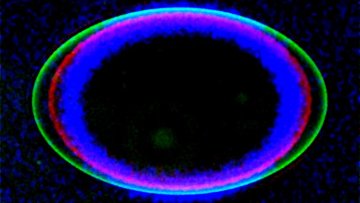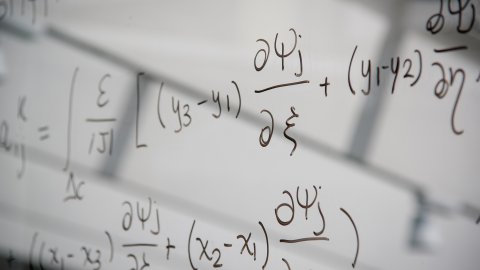14:15
Folded hyperkähler manifolds
Abstract
The lecture will introduce the notion of a folded 4-dimensional hyperkähler manifold, give examples and prove a local existence theorem from boundary data using twistor methods, following an idea of Biquard.
14:15
Geometric structures, Gromov norm and Kodaira dimensions
Abstract
Kodaira dimension provides a very successful classification scheme for complex manifolds. The notion was extended to symplectic 4-manifolds. In this talk, we will define the Kodaira dimension for 3-manifolds through Thurston’s eight geometries. This is compatible with other Kodaira dimensions in the sense of “additivity”. This idea could be extended to dimension 4. Finally, we will see how it is sitting in a potential classification of 4-manifolds by exploring its relations with various Kodaira dimensions and other invariants like Gromov norm.
14:15
Ends of the moduli space of Higgs bundles
Abstract
Hitchin's existence theorem asserts that a stable Higgs bundle of rank two carries a unitary connection satisfying Hitchin's self-duality equation. In this talk we discuss a new proof, via gluing methods, for
elements in the ends of the Higgs bundle moduli space and identify a dense open subset of the boundary of the compactification of this moduli space.
Intuition tells us that when you make holes in a solid, it makes the solid softer. As an extreme example, think of a cellulose sponge, which is made from a material that is essentially wood. While you can only bend, stretch or compress a piece of wood with difficulty, you can easily deform a sponge, because it is highly porous. This intuition agrees with classical mechanics theory. So Rob Style from Oxford Mathematics and colleagues were surprised to find that this doesn't work for soft materials.
Narrative and Proof - TORCH’s Annual Headline Series 2014-15, Humanities and Science
Abstract
“Narrative and Proof”, is an interdisciplinary discussion where one of the UK's leading scientists, Marcus du Sautoy, will argue that mathematical proofs are not just number-based, but also rely on narrative. He will be joined by author Ben Okri, mathematician Roger Penrose, and literature expert Laura Marcus, to consider how narrative shapes the sciences as well as the arts.
The discussion will be chaired by Elleke Boehmer, Professor of World Literature in English, University of Oxford, and will be followed by audience questions and a drinks reception.
The event will take place from 5 to 6:30 pm on Tuesday 20 January 2015 at the Mathematical Institute, Radcliffe Observatory Quarter, Woodstock Road, Oxford. The event is free and open to all, but registration is recommended.
Please click here to register.
This event is co-hosted by the Mathematical Institute and The Oxford Research Centre in the Humanities (TORCH), and celebrates the launch of TORCH’s Annual Headline Series 2014-15, Humanities and Science.
Inaugural Titchmarsh Lecture - Cedric Villani
Abstract
Oxford Mathematics Public Lectures
Inaugural Titchmarsh Lecture
10.03.15
Cédric Villani
Birth of an Idea: A Mathematical Adventure
What goes on inside the mind of a mathematician? Where does inspiration come from? Cédric Villani will describe how he encountered obstacles and setbacks, losses of faith and even brushes with madness as he wrestled with the theorem that culminated in him winning the most prestigious prize in mathematics, the Fields Medal. Cédric will sign copies of his book after the lecture.
5pm
Lecture Theatre 1, Mathematical Institute, Andrew Wiles Building, Radcliffe Observatory Quarter, Woodstock Road, OX2 6GG
Please email @email to register
Cedric Villani is a Professor at the University of Lyon and Director of the Institut Henri Poincaré



